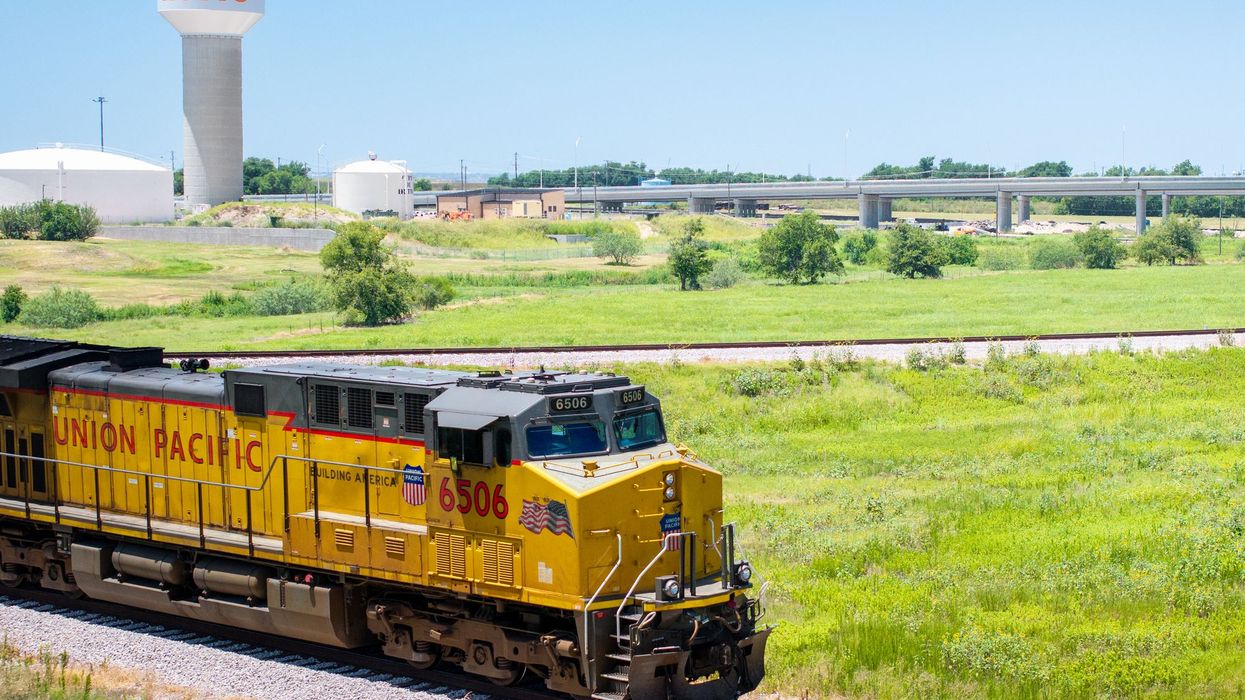Pennsylvania today is faced with two very different possible
futures, according to a new Union of Concerned Scientists (UCS) report
that provides the most in-depth look at the potential consequences of
climate change in Pennsylvania to date.
If global warming emissions are not significantly curtailed, by late
this century summer temperatures could exceed 90 degrees daily in
southern parts of the state, some tree species could decline sharply,
and farmers could suffer major losses, the report concluded.
Conversely, if global warming emissions are reduced significantly,
state residents would experience only about half as many "extreme heat"
days every summer, the tree species that produce colorful fall foliage
would not disappear from the state, and Pennsylvania farmers would be
better able to adapt.
The report, "Climate Change in Pennsylvania: Impacts and Solutions for the Keystone State,"
is a follow-up to a report released last year by UCS and 50 independent
scientists that analyzed climate change in the Northeast.
"Scientists are already seeing the effects of global warming in
Pennsylvania, including less snow, more rainfall, drier summers and
more days with extreme heat," said Melanie Fitzpatrick, UCS's Northeast
impacts science coordinator. "And if we continue to rely primarily on
coal, oil and natural gas, by late this century the annual average
temperature in Pennsylvania could rise 12 degrees above the long-term
average. But if we reduce our emissions, we may cut projected warming
by half. Temperatures are going to go up, but there is still time to
avoid the worst."
The report's findings for south central Pennsylvania include:
Climate: By mid-century, most of south central
Pennsylvania is expected to experience between 40 to 70 summer days
with temperatures higher than 90 degrees if emissions continue
unabated. By late this century, the mercury could top 90 degrees nearly
every summer day. Summer would feel more like those today in southern
Georgia. Under a lower-emissions scenario, warming would be curtailed,
and summers would be more like those today in Virginia.
Health: Pennsylvania could experience a dramatic
increase in the number of dangerous heat days under a
business-as-usual, higher-emissions scenario. By late century, for
example, Harrisburg is projected to face 26 days with temperatures
higher than 100 degrees. Under the lower-emissions path, Harrisburg
would experience approximately seven days per year of such temperatures.
Agriculture: Scientists expect the yield and
quality of key crops, including sweet corn, Concord grapes and apples,
to decline if emissions continue to grow. Cutting emissions would give
farmers more time adapt, including switching to different varieties and
other crops. Cutting emissions also would help the dairy industry.
Under the higher-emissions scenario, milk production is projected to
decline 15 to 20 percent due to heat stress on cows. Under the
lower-emissions scenario, production would drop 10 percent at most.
Forests: If emissions are not significantly curbed,
scientists expect the state to become unsuitable for the economically
valuable black cherry tree by late century, and for the maple, beech
and birch forests that produce the state's brilliant fall foliage.
Fish: As water temperatures warm, some streams and rivers may become
inhospitable for two of the state's premier sport fish: trout and
smallmouth bass.
Snow: Because of global warming emissions already
in the atmosphere, the state's traditional white winters are expected
to all but disappear by mid-century. Sometime in the next several
decades, ski resorts in eastern Pennsylvania will no longer be able to
count on being open 100 days per year, including the week between
Christmas and New Year's day, to ensure solvency.
Pennsylvania cannot reduce global warming alone, but it can -- and
should -- play a leadership role, Fitzpatrick said. "The state is
important because it exports energy to nearby states and is a
surprisingly large source of heat-trapping emissions," she said. "It's
the third-highest emitting state in the United States and emits more
than most countries."
The state already has taken several important steps to address the
problem. For example, it has recruited several renewable energy
technology companies to build manufacturing facilities in the state,
and is supporting the growth of wind-generated electricity by
purchasing large quantities of "green power."
But Pennsylvania can do significantly more, Fitzpatrick said. The
state should require coal-fired power plants in the state to replace a
percentage of the coal they burn with biomass. It also should ban
construction of new coal-fired plants unless they can capture and store
their carbon emissions. At the federal level, the state's congressional
delegation should support strong legislation to reduce emissions
nationwide and promote renewable energy sources.




